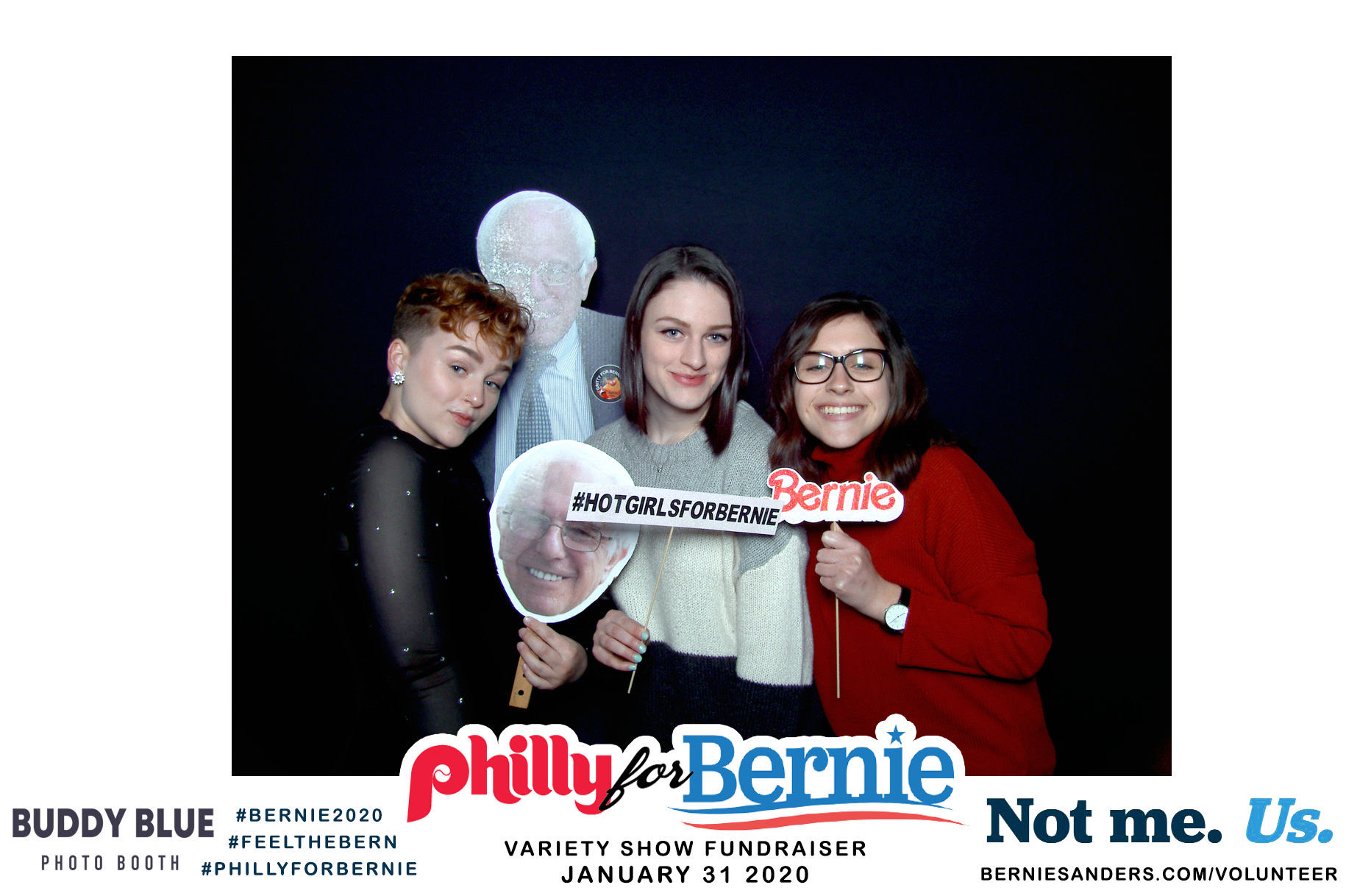To find a hub of young political activists and advocates making an impact, look no further than Temple University. Three former and current Temple students — two with education in Klein College of Media and Communication — ran as Democratic National Convention (DNC) delegates for Pennsylvania’s third congressional district, pledging their support for former presidential candidate Bernie Sanders. Christina Borst, KLN ‘19; Daisy Confoy, a rising senior political science student with a minor in public relations; and Heather Pope, CLA ‘20, campaigned together for the June 2 primary election and demonstrated just how effectively young people can amplify their concerns not just within their communities, but within a larger political party.
Borst knows that communication and advocacy are essential in creating a more equitable future. While at Temple, she majored in both strategic communication and political science, a decision she made during the 2016 presidential election when she says the need for effective communicators became more apparent than ever. She also served as president of Temple College Democrats and as state council chair of Pennsylvania College Democrats. After graduating, she secured a position at Sage Communications as a junior associate, working closely with social impact communications specialists.
It was then that Borst decided to use her political enthusiasm to her advantage as a prospective Democratic pledged district delegate. If she were to win, she would have attended the DNC and voted for the presidential candidate she was elected to support.
“It really just went back to young people [having] an opportunity to have their interests reflected and to fight for candidates they really care about and issues they really care about, so why not just do it?” Borst says.
Confoy also has a vested interest in prioritizing the perspectives of young people within the Democratic Party. She serves as the current president of Temple College Democrats, and with Pope helped run Temple Students for Bernie. Her involvement on campus is how she discovered the possibility of running for a delegate slot, and she wants other engaged students to know about similar opportunities.
“As a young person and especially as the Temple College Democrats president, my job is to connect young people with left-leaning politics to opportunities like internships, jobs and volunteer opportunities and part of that is making sure that youth voices are heard in politics,” Confoy says. “So I thought if I could get on the ballot, elevating a young person’s voice would be a good thing for the party.”
But the process of getting on the ballot was not easy. The students had to apply to both the Sanders campaign and the Democratic Party of Pennsylvania to receive petitions to run as district delegates. Then, they each had to gather at least 250 signatures (though they all aimed for 400 signatures) so that their names could be featured on the ballot. They campaigned by standing outside of grocery stores and utilizing the close-knit Sanders campaign network in Philadelphia to spread the word about their efforts. Borst even received support from colleagues at Sage Communications, who encouraged her to make a video about her candidacy.
“It felt super surreal to get my mailed ballot and see my name on it — it kind of felt fake. But having gone through the process already I definitely feel more confident about it if I ever decided to do it again. But to know that I was one of the Bernie delegates to get one of the great shares of votes, that definitely meant a lot to me,” Borst says.
Similarly, Pope, a political science graduate, was grateful for the backing she received. Though she earned over 52,000 votes, the second-highest number of votes for a Sanders delegate in the third congressional district, Pennsylvania’s delegate selection plan requires an equal number of women and men to go to the DNC as delegates. As a result, she was not selected to attend. Despite the outcome, she hopes that her delegate campaign acts as an example for young people to recognize their power.
“I have found in my experience that even within Democratic circles, old leadership is not super willing to hand over the reins and listen to you and respect the voices of young people who are doing the bulk of the work and make up a large majority of the party and the country. So I think it’s really important for young voices to be present,” Pope says.
The candidates’ collective experience lent them additional insight about what happens behind the scenes of campaigns. And more importantly, it helped inform their worldview. “I know that young people have so much political power, and...even looking back at the last month, I think young people are really embracing that and understanding that they need to show up as much as possible,” Borst says.
The DNC is scheduled for August 17-20, 2020, in Milwaukee, Wisconsin. The Republican National Convention is scheduled for August 24-27, 2020, in Charlotte, North Carolina.

